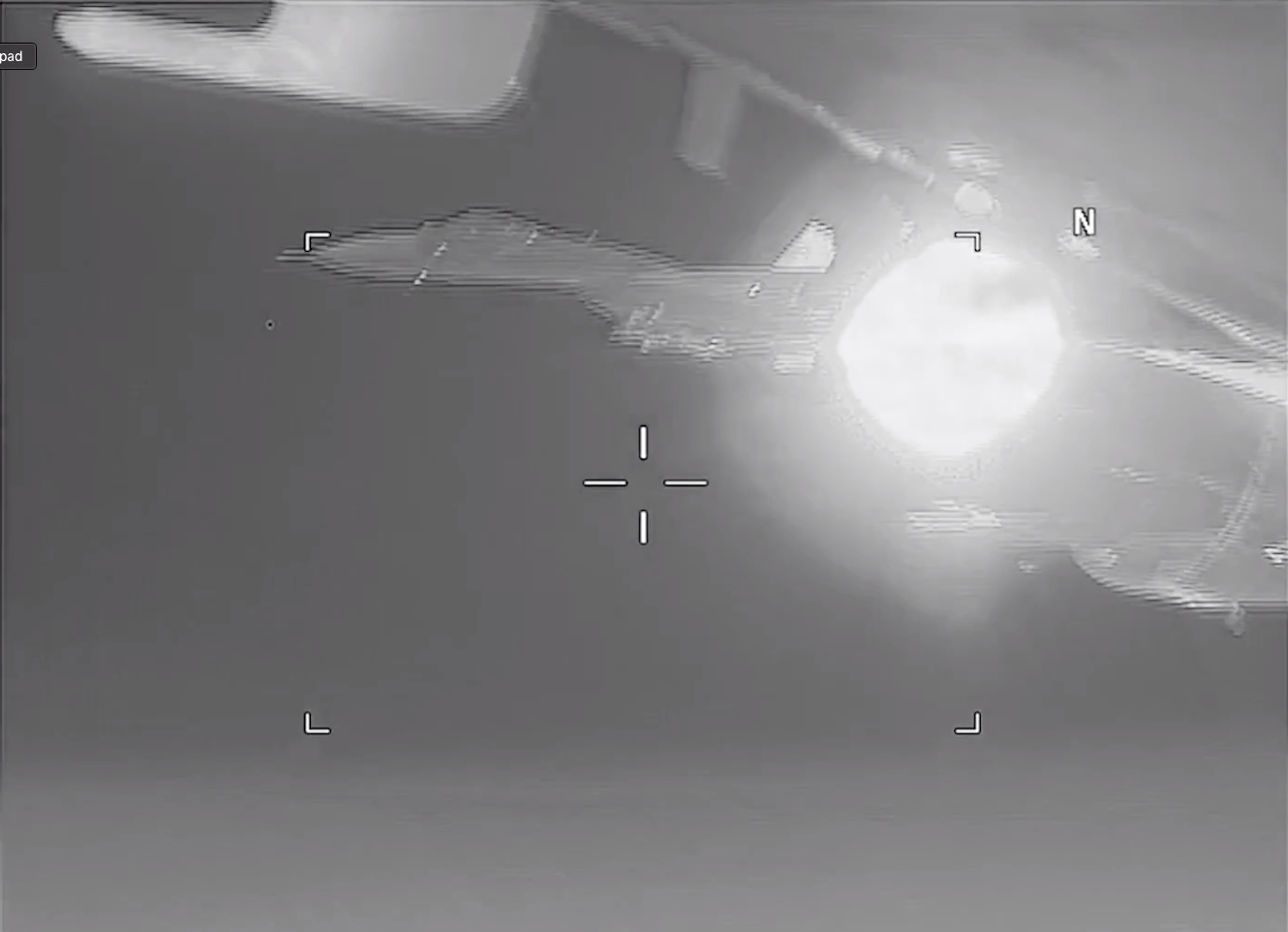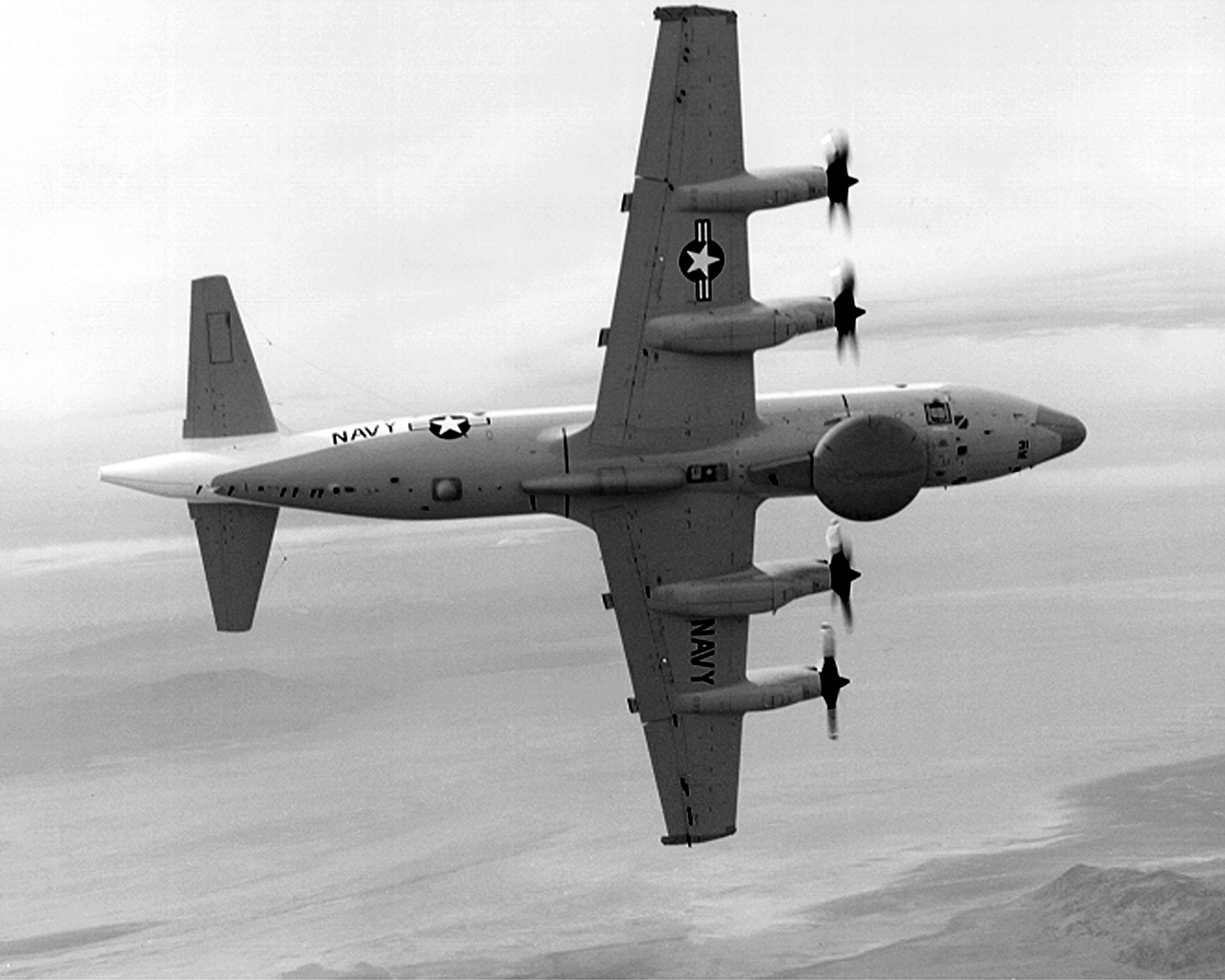
Screen capture from video of a Su-27 conducting an unsafe intercept of a Navy EP-3E Aries II over the Black Sea on Nov. 5, 2018, US Navy Image
A Russian Su-27 intercepted a U.S. EP-3 Aries II aircraft flying in international airspace over the Black Sea today, the Navy announced.
The Russian fighter conducted a high-speed pass directly in front of the EP-3 and then chased after it a second time, in what the U.S. Navy called an unsafe interaction.
“A U.S. EP-3 Aries aircraft flying in international airspace over the Black Sea was intercepted by a Russian Su-27. This interaction was determined to be unsafe due to the SU-27 conducting a high speed pass directly in front of the mission aircraft, which put our pilots and crew at risk,” according to a Navy news release.
“The intercepting Su-27 made an additional pass, closing with the EP-3 and applying its afterburner while conducting a banking turn away. The crew of the EP-3 reported turbulence following the first interaction, and vibrations from the second. The duration of the intercept was approximately 25 minutes.”
The Navy release added that, “while the Russian military is within its right to exercise within international airspace, this interaction was irresponsible. We expect them to behave within international standards set to ensure safety and to prevent incidents, including the 1972 Agreement for the Prevention of Incidents On and Over the High Seas (INCSEA). Unsafe actions increase the risk of miscalculation and potential for midair collisions.”
The Navy added that its aircraft was operating in accordance with international law and that a forthcoming video would show that.

A U.S. Navy EP-3E Aries II maritime patrol aircraft. US Navy Photo
This is not the first time a Russian fighter has intercepted a Navy aircraft in international airspace in the Black Sea.
On Jan. 29, an SU-27 cut in front of an EP-3 within five feet of the aircraft, causing the U.S. plane to fly through the jet wash.
On Nov. 25, 2017, a Russian SU-30 fighter intercepted a U.S. Navy P-8A Poseidon aircraft over the Black Sea.
The following is the full statement from U.S. 6th Fleet and U.S. Naval Forces Europe:
On Nov. 5, 2018, a U.S. EP-3 Aries aircraft flying in international airspace over the Black Sea was intercepted by a Russian SU-27. This interaction was determined to be unsafe due to the SU-27 conducting a high speed pass directly in front of the mission aircraft, which put our pilots and crew at risk. The intercepting SU-27 made an additional pass, closing with the EP-3 and applying its afterburner while conducting a banking turn away. The crew of the EP-3 reported turbulence following the first interaction, and vibrations from the second. The duration of the intercept was approximately 25 minutes.
While the Russian military is within its right to exercise within international airspace, this interaction was irresponsible. We expect them to behave within international standards set to ensure safety and to prevent incidents, including the 1972 Agreement for the Prevention of Incidents On and Over the High Seas (INCSEA). Unsafe actions increase the risk of miscalculation and potential for midair collisions.
The U.S. aircraft was operating in accordance with international law and did not provoke this Russian activity. The video will be forthcoming.
